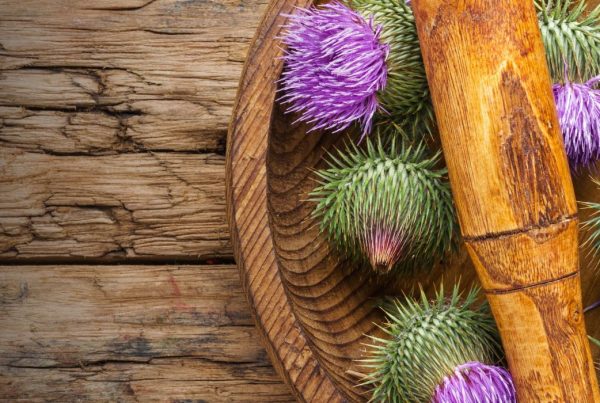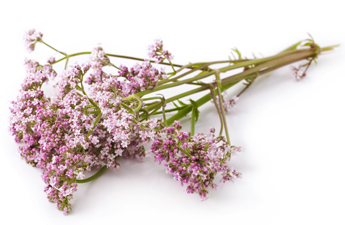Whether you’ve got a stubborn cough from a cold or flu, or your lungs are damaged from exposure to smoking or vaping, herbs can help support your lung health and help you breathe easy again. Healthy lungs are essential for overall well-being as they are responsible for delivering oxygen into our blood, which is the foundation of all healing! Thankfully, there are many herbs that can help soothe coughs and support the natural healing process of your lungs, and get your respiratory system working at its best. Let’s explore some of our favourite herbs known for their use with lung health and how to use them.
1. Mullein
Mullein (Verbascum thapsus) is renowned for its ability to soothe respiratory tract irritation and ease coughing. This herb acts as an expectorant, helping to expel mucus and reduce inflammation in the lungs.
Benefits:
- Relieves coughs and throat irritation
- Supports lung detoxification
- Reduces inflammation in the respiratory tract
How to Use:
- Tea: Steep 1-2 teaspoons of dried mullein leaves or flowers in hot water for 10-15 minutes. Drink 2-3 times a day.
- Tincture: Take 20-30 drops in water or juice, 2-3 times daily.
2. Coltsfoot
Coltsfoot (Tussilago farfara) has been used for centuries to ease coughs and bronchial congestion. Its mucilage content soothes the lining of the lungs, making it effective for dry coughs and bronchitis.
Benefits:
- Soothes dry coughs
- Helps clear mucus from the lungs
- Reduces bronchial inflammation
How to Use:
- COLTSFOOT IS RESTRICTED FOR INTERNAL USE IN AUSTRALIA, as it contains small amounts of zinc. Therefore, we can only recommend and sell it as a smoking herb, which surprisingly still works wonders for coughs and damaged lungs. We include it in many of our smoking blends.
- In other countries, it has been used safely for centuries as a tea or even a tincture.
3. Elecampane
Elecampane (Inula helenium) is a powerful lung tonic, known for its expectorant and antimicrobial properties. It’s particularly supportive for chronic bronchitis and coughs associated with lung infections. It is also beneficial to build up the strength of the lungs.
Benefits:
- Promotes mucus expulsion
- Fights respiratory infections
- Eases chronic coughs and bronchitis
How to Use:
- Tea: Simmer 1 teaspoon of dried elecampane root in hot water for 15-20 minutes. Drink 1-2 cups daily.
- Tincture: Take 20-30 drops in water or juice, 2-3 times daily.
4. Licorice
Licorice (Glycyrrhiza glabra) is a soothing herb that may reduce inflammation and irritation in the lungs. Its expectorant properties make it effective in loosening and expelling mucus, providing relief from persistent coughs, and soothing sore throats.
Potential benefits:
- Reduces lung inflammation
- Soothes irritated airways
- Promotes mucus expulsion
How to Use:
- Tea: Simmer 1 teaspoon of dried liquorice root in hot water for 10-15 minutes. Drink 1-2 cups daily.
- Tincture: Take 20-30 drops in water or juice, 2-3 times daily.
5. Marshmallow
Marshmallow (Althaea officinalis) leaves and roots are rich in mucilage, which forms a protective layer over the mucous membranes in the lungs, throat, and gastrointestinal tract, helping to moisten dry, irritated and inflamed tissues. This helps to soothe irritation and reduce coughing.
Potential benefits:
- Soothes irritated lungs and throat
- Reduces coughing
- Provides a protective barrier against irritants
How to Use:
- Tea: Steep 1-2 teaspoons of dried marshmallow root in cold water for 4-5 hours. Strain and drink 1-2 cups daily.
- Tincture is not as recommended for this herb, as it doesn’t contain the healing mucilage.
6. Lobelia
Lobelia (Lobelia inflata), also known as Indian tobacco, is a potent herb that helps clear mucus from the respiratory tract. It has a bronchodilator effect (opens the airways), making it easier to breathe, especially during asthma attacks or severe bronchitis.
Potential benefits:
- Clears mucus from the lungs
- Acts as a bronchodilator
- Helps ease breathing in respiratory conditions
How to Use:
-
- Tea or Tincture – ONLY USE UNDER THE GUIDANCE OF A HERBALIST. This is a LOW DOSE botanical, with the starting dosage of ⅛ to ¼ tsp per cup, and is not advised to use internally unless prescribed by a herbalist.
- Steam Inhalation: Add a tsp of lobelia to hot water and inhale the steam.
- Smoke: It may be counterintuitive to smoke something to heal the lungs, but Lobelia still acts as a bronchodilator when smoked, and has the unique ability to bind to nicotine receptors in the brain, lessening cravings.
7. Peppermint
Peppermint (Mentha piperita) contains menthol, which acts as a natural decongestant and helps relax the muscles of the respiratory tract. Peppermint tea or inhaling peppermint essential oil can provide significant relief from coughs and congestion.
Potential benefits:
- Acts as a natural decongestant
- Relieves coughs and congestion
- Soothes the respiratory tract
How to Use:
- Tea: Steep 1 teaspoon of dried peppermint leaves in hot water for 10 minutes. Drink 1-2 cups daily.
- Steam Inhalation: Add a few drops of peppermint essential oil to hot water and inhale the steam.
8. Slippery Elm
Slippery Elm is a demulcent mucilaginous herb that is used to soothe irritated and inflamed tissues of the throat and digestive tract. It is helpful in cases of dry, irritated coughs.
Potential benefits:
- Soothes irritated lungs and throat
- Eases coughing
- Provides a protective barrier
How to Use:
- Tea: Add 1 teaspoon of Slippery Elm powder to a cup of hot or cold water, stir well and drink immediately. Make sure to drink plenty of water.
- Tincture is not recommended for this herb, as it doesn’t contain the healing mucilage.
9. Eucalyptus
Eucalyptus (Eucalyptus globulus) is widely known for its respiratory benefits. Its essential oil contains cineole, which helps reduce inflammation, loosen mucus, and soothe irritated airways.
Potential benefits:
- Reduces inflammation in the respiratory tract
- Loosens and expels mucus
- Soothes irritated airways
How to Use:
- Steam Inhalation: Add a few drops of eucalyptus essential oil to hot water and inhale the steam.
- Chest Rub: Dilute eucalyptus essential oil with a carrier oil and apply to the chest for relief.
10. Thyme
Thyme (Thymus vulgaris) is an excellent herb for lung health, thanks to its antimicrobial and expectorant properties. It helps fight respiratory infections, clear mucus, and reduce coughing.
Potential benefits:
- Fights respiratory infections
- Promotes mucus expulsion
- Reduces coughing
How to Use:
- Tea: Steep 1 teaspoon of dried thyme leaves in hot water for 10 minutes. Drink 1-2 cups daily.
- Steam Inhalation: Add a few drops of thyme essential oil to hot water and inhale the steam.
Cough Syrup Recipe
Check out this herbal cough syrup recipe video from our Happy Herbalist to help soothe the lungs, ease coughs and expel excess mucus. Full recipe HERE.
Take Action!
Incorporating these herbs into your daily routine can significantly support your lung health, whether you’re recovering from smoking or vaping damage or simply dealing with a stubborn cough. Always consult with a healthcare professional before starting any new herbal regimen, especially if you have underlying health conditions or are taking medications.






 Nextwave
Nextwave
